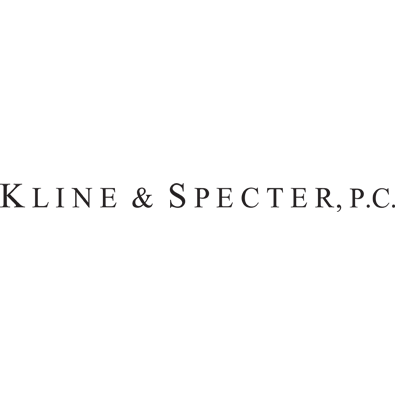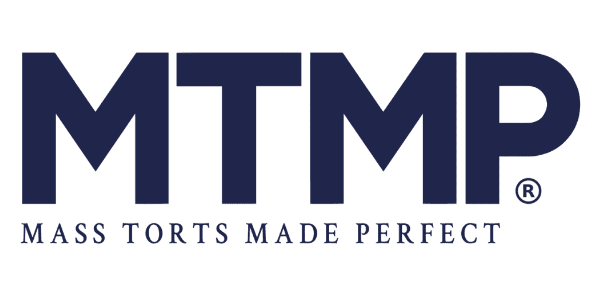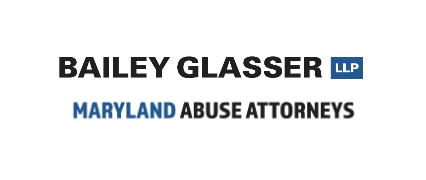Susan Barfield (00:05):
Hello everyone. Thank you for joining another Case Works stream. We are here today with both Dan Comunale, who is VP of our sales in marketing. And we are honored to have Syreeta Poindexter from Babin Law on today, talking all things CPAP. So, excited to have you, Syreeta. Again, thank you so much for taking time to connect with us and share all the updates, insights, and all the secrets that you have that you’re going to be sharing with everybody today, as it relates to CPAP.
Syreeta Poindexter (00:38):
Thank you for having me.
Susan Barfield (00:39):
Yeah, absolutely. I think, really to get started, I’d love to hear… I was able to learn more about your background. I got to see the awesome video on the website and get to know you a little bit better. But just for those that are in our industry and for those that are watching, will you share a little bit about what led you to going to law school and in deals that you have experience in working at the Babin Law Firm?
Syreeta Poindexter (01:03):
Sure. So I initially began my career working for my family businesses. My parents owned a daycare center, a restaurant, and a nonprofit. And I thought I would be there forever until I graduated college and got a little rebellious and decided to do something different. So I ended up working as a case manager at a correctional facility. And what I seen there, it motivated me to go to law school.
Syreeta Poindexter (01:27):
So I would have two clients that are similarly situated, like two 18 year old boys, one has access to legal counsel, one doesn’t. One would graduate with a felony. One would graduate without one. And something about that just did not sit right with me. So I’m like, you know what? I’m going to go to law school, and I’m going to change the world. So that’s how I ended up in law school.
Syreeta Poindexter (01:48):
As far as the mass torts that I am, I began my career working in opioids, and I really liked the feel of that. I feel like even though it wasn’t the direction that I planned when I went to law school, I feel like we’re still helping clients and helping people get their needs met and get the compensation that they deserve when these big companies, when they do the things that they do, they hurt people.
Susan Barfield (02:09):
Yeah. Two things that you mentioned yesterday… Well, you didn’t mention them yesterday. I watched one of the videos that you shared that really resonated with me was your passion. And it really comes through on that video about helping people. And our mission is really, to help lawyers help people. The way we can help people, you are the ones helping the people. The way we can help them is not only provide a great plaintiff experience, but the more that we can help lawyers, then that allows us to, extend our reach. And so that, and then you talked a little bit about culture and just how awesome the culture and how Steve has created this environment at Babin Law that fosters this type of culture. And I think that again, resonated and just really lends credit to the firm that you’re working at and is just everyone’s passion.
Syreeta Poindexter (03:00):
Yes. It’s almost like I’m like a walking commercial when you talk about Steven Babin, because I just adore him. The things that he stands for and the firm that he’s building is something that’s really special. He is super client-centered. That’s the center of everything we do. But in addition to that, he’s super focused on the growth of everyone who works for him. And I love that. I love that I’m a part of helping build this thing that’s just so unique and so different from any other mass tort firm that I’ve ever experienced before.
Susan Barfield (03:33):
Well, that’s cool. We had a stream that we recorded with him on human trafficking. And one of the things he talked about was just surrounding himself with smart people. And so that’s what he’s doing. Well, that’s awesome to hear. And just to kind of move into talking a little bit about the CPAP, I shared that we’ve had some attorneys on that are on the plaintiff steering committee. And it’s exciting that, you’re on today to share insights and updates, but that you’re on the Plaintiff Leadership committee. And so I was just interested if you would help us understand the difference between these committees and what the Plaintiff Leadership committee’s role and focus is on.
Syreeta Poindexter (04:09):
Sure. So when an MDL such as CPAP is formed, the judge appoints a Plaintiff Steering committee, or a PSC, with the purpose of leading the interest of the plaintiffs in a multi-district litigation. So the expectation is that all of the attorneys appointed to the PSC will join efforts in order to push the claims forward as efficiently and cost effectively as possible.
Syreeta Poindexter (04:31):
As far as the committees, different MDLs may have different committees, but I’m sure they all have the basic committees, like your discovery committee, your law and briefing, your bellwether committees. So as far as CPAP goes, I’m a member of the Experts in Science committee. So what we’re tasked with doing is we develop the science behind the case, so the science behind the machines, the science behind the phones, the science behind the injuries. We vet and retain experts that help support our claims. So each individual committee has their focus that they focus on working up the case, they focus on working up.
Susan Barfield (05:10):
Sure. That’s so interesting. Can you tell us a little bit, when you talk about the science and research, any changes or any news over the last few months that is potentially anything different than what people are, have been made aware of so far?
Syreeta Poindexter (05:27):
Not yet. I think right now, we’re still really early. So right now, we’re in a process of vetting experts. We’ve been spending a lot of time interviewing experts, researching experts, retaining experts. So we are not to the point where we have new developments yet, but we have been retaining experts, and it’s moving along very well.
Susan Barfield (05:44):
Okay. That’s good to know.
Dan Comunale (05:48):
Last time we spoke, when we met at the Harris Martin Conference in Pittsburgh, you mentioned a little bit about sort of the machine. And for our audience, and for those of who aren’t familiar with CPAP, you had mentioned, I believe, that there was a counter in the terms of the hours and for usage. Is that something that’s a sort of leadership’s also focusing on, or the litigation in general, in terms of proving sort of the length of usage?
Syreeta Poindexter (06:16):
So I love my committee. I’m on the Science and Expert committee. So when I tell you, they literally break down every aspect of this case, every aspect of the machine, every aspect of the… All of that is going to be broken down into the most minuscule pieces and looked at so that we can really get to the bottom of what happened here and what’s going on.
Dan Comunale (06:38):
Excellent.
Susan Barfield (06:40):
Syreeta, knowing that all firms and we work with a myriad of firms that are acquiring and to help them work up the CPAP cases. And they all have unique case criteria. What is Babin Law looking for when considering getting in CPAP cases?
Syreeta Poindexter (06:58):
So we are a little tighter. A lot of firms they’re, they’re letting all kind of cancers in, and I don’t know that’s the right or the wrong thing since that science hasn’t been developed. But as far as cancer, we stick to sinus cancer, nasal cancer, kidney cancer, throat cancer, lung cancer, and liver cancer. Those are the only cancers we’re taking right now. I don’t fault anyone who takes more than that, because obviously this was some dirty stuff. You’re feeding in these carcinogenic toxins. So it’s not far fetched to think that you could cast a wider net. But for us, we’re just being a little bit tighter with what we’re looking for.
Susan Barfield (07:37):
Yeah, makes sense.
Dan Comunale (07:40):
For any attorneys looking to get into the CPAP litigation, is there any guidance in terms of a best way to approach marketing, organic, first paid, or case acquisition in general? Is there any sort of insights that you can give based off your experience in litigation?
Syreeta Poindexter (07:55):
Honestly, we do a little bit of everything. Our case acquisition has been great. We work with great teams who put us in contact with great clients. So we diversify. We do different things because I feel like that’s your best bet at getting different kind of cases. So, yes, I would definitely say, try. Try and see what works for your firm, because what works for us might not work for you.
Dan Comunale (08:17):
No, that makes total sense. And as Susan, as our founder and share, she knows all too well, the complexities and over the years of building casework, that the quality of cases coming in, the engagement really, really, truly matter. So in talking with yourself and Steve, I know that you guys have a great sort of process for capturing client engagement, but that’s something that’s not only linchpin to our business, but something that’s pivotal to the industry in general. So that’s a great point.
Susan Barfield (08:47):
And then Syreeta, as you’re talking with other attorneys and groups that are acquiring these cases there, is there anything unique that you would say that Babin Law is doing related to outside of your more narrowed injuries that you’re taking?
Syreeta Poindexter (09:02):
I think that in general, our approach to working up our mass tort cases is unique. We have a very hands-on, client-centered approach to working up cases. And I think that we work our cases up in a way that most people don’t, as far as our interaction with our clients and the care that they’re given. So I really love our client-centered approach to literally everything we do on this firm. I think it’s amazing.
Dan Comunale (09:29):
Is there any recent case management orders that have just been released or anything there that we could ask that would be-
Syreeta Poindexter (09:36):
We’ve got complaints coming down the pike. The consolidated economic complaint should be filed by June 20th. The consolidated medical monitoring complaint should be filed by August 22nd. And the master personal injury complaint should be filed on or before August 22nd.
Dan Comunale (09:56):
Okay.
Syreeta Poindexter (09:58):
And we’ve also got a Science Day coming up with the court, September 1st.
Dan Comunale (10:02):
That’s very helpful.
Susan Barfield (10:03):
Tell us a little bit about, I’m glad you mentioned that science day. Tell us a little bit about Science Day for those that maybe are not quite sure what that needs and what that is.
Syreeta Poindexter (10:12):
So Science Day is basically where we just explain to the court, the science behind the case the best way we can. That’s the defendants and the plaintiffs together. They put together experts to explain what we believe the science is behind this case on what’s going on.
Susan Barfield (10:29):
Is that when certain cancers will get dropped or not be included? Is that when you kind of nail down the injuries as it relates to the defective machine?
Syreeta Poindexter (10:40):
No. The cancers will continue to be worked up. We will obviously, give the court what we have as far as what we know for injuries, but that’s still a process that’s being developed.
Susan Barfield (10:52):
And for attorneys and you know, that are viewing this stream and are interested in getting involved… And I’m sure you have people say, oh, I want to get into CPAP. Syreeta, tell me what I need to know to be able to get involved? What cases should I go after and such? So what type of advice have you given attorneys that want to get involved in this tort?
Syreeta Poindexter (11:13):
Do it, absolutely. There’s been millions of machines recall. We’re still working up the cancers, but there’s plenty of injuries that we know are a result of this toxic foam that people were inhaling. So I definitely think it’s a very interesting case and one worth investing in.
Susan Barfield (11:32):
What about other torts? Are you working on any other torts at the moment?
Syreeta Poindexter (11:36):
So I’m just getting into any NEC. I’m very interested in that case. That’s like a passion project for me since I’m pro-breastfeed baby mom. So I’m just ramping up NEC. Hernia mesh is a well-oiled machine for us that we will continuously run forever more than likely. And we do a little bit of 3M.
Susan Barfield (11:59):
That’s awesome. Sounds like you got a lot of experience on different torts. Also, we have viewers that are just in personal injury, not only mass tort attorneys looking to get into other torts and hearing and listening to you guys and leaders on the different torts to determine like, hey, do I want to get into it or not? But what about personal injury attorneys that are listening that say, I wonder if I should get into mass torts? What would you say some advice or guidance to them, knowing that they’ve primarily worked up single event cases and the difference in getting into mass torts?
Syreeta Poindexter (12:34):
I’d say, dip your feet in by getting a co-counsel relationship with someone. I know for us, when we co-counsel with firms who don’t have experience, we let them get involved as little or as much as they want to. So it’s kind of like learning on the job. So I think that’s an excellent way for you to not only actually have some fight in the game, but to actually learn the process as well. We’re very process-oriented here at Babin. So that would be my number one suggestion for someone who hasn’t done it, who would like to do it. Find a good co-counsel relationship.
Susan Barfield (13:03):
Yeah, absolutely. That’s awesome advice actually. Yeah, go ahead.
Dan Comunale (13:09):
Real quick, one thing that we like to do towards the end of some of these live streams is kind of, where do you see yourself five years from now in the context of the mass tort litigation? Where do you want to grow your career? It’s clear. Your passion is clear. On the hockey stick slope in the mass tort arena, where do you see yourself in five years?
Syreeta Poindexter (13:29):
I will be with Babin Law because I absolutely love it here. We are going to build an amazing mass tort or personal injury firm. I would like to continue to grow in leadership in different multi-district litigations. I’d like to get more people, more diverse people involved because that’s been something that the court has been interested in lately. And I think that’s amazing. I’d like to play my part in helping make that happen as well. So I’d like to continue to do what I’m doing, but grow in this field and grow in this area and help more people. And I love it, and help Babin Law continue to just be more and more amazing. [inaudible 00:14:06].
Susan Barfield (14:06):
I think you’re spot on, and I’m honored to be able to connect with you. It’s such a male-dominated industry. And so I get so pumped up and excited to talk with other strong women in leadership. And so this has just been a great pleasure for me to be able to have an opportunity to connect with you, hear your passion. I’m equally as passionate on the side of helping to work up the cases. And so Syreeta, we really appreciate you taking time to hop on. I know you’re busy, but share these insights and updates with the industry and with us. So thank you so much for taking the time to do this with us.
Syreeta Poindexter (14:48):
Thank you so much for having me.
Susan Barfield (14:50):
Yes.
Dan Comunale (14:50):
Thank you.





